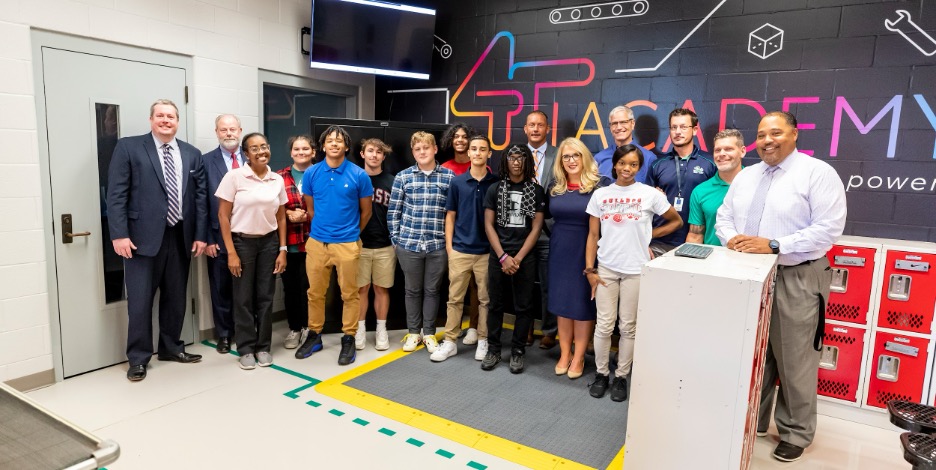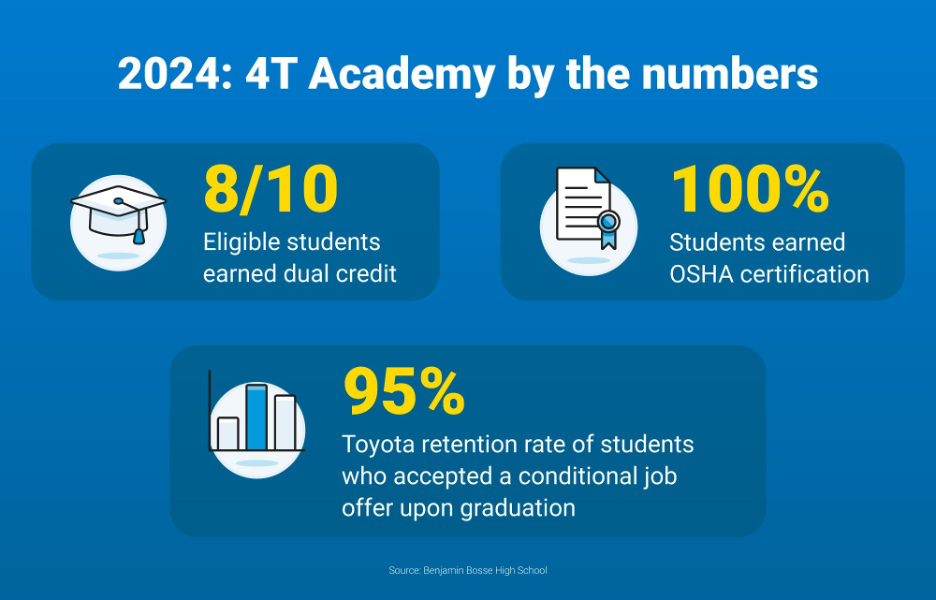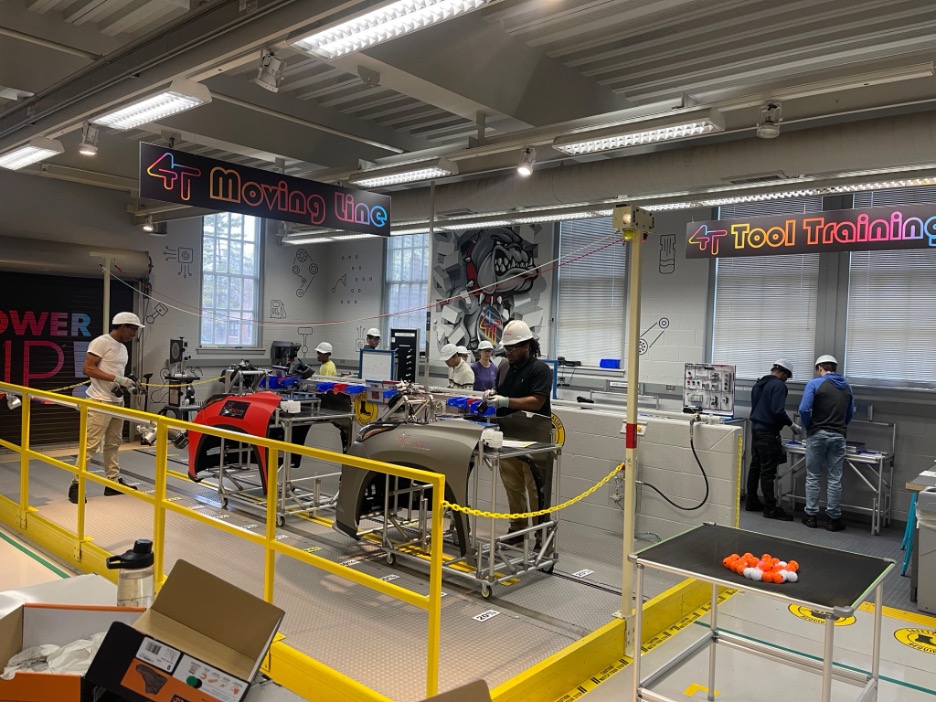Careers
Students Can’t Be What They Can’t See
Benjamin Bosse High School partners with Toyota, offering students work-based learning opportunities in advanced manufacturing.
48% of high school students (both college-bound and non-college-bound) said that they feel anxious about exploring their future careers in a study by College Board and Morning Consult. But 9 in 10 students said they would like more career exploration opportunities in school. This is why providing students with access to career-relevant information, career-oriented courses, and work-based learning opportunities is crucial—and students are hungry for it.
College Board’s college and career-focused resources, courses, and assessments help them navigate postsecondary education and career pathways. To elevate schools and organizations that are providing students with career information and helping them build career-relevant skills, we are publishing a series of member spotlights to help illuminate why this work is so important—and how it’s changing lives.

Member Spotlight: Benjamin Bosse High School in Evansville, Indiana
Benjamin Bosse High School is paving a path for its students to gain hands-on experience in advanced manufacturing by offering juniors and seniors a work-based learning program in partnership with Toyota.
Opportunity
Aaron Huff, principal of Benjamin Bosse High School, is reimagining the high school experience. Huff envisions a world where students have the option to begin stacking internships or apprenticeships while still in high school, helping them gain applicable work experience and insight into career paths.
“More than half of my kids live within a 14-block radius and walk to school. My goal is to help them understand what all is out there—careers that they might not know exist,” Huff said. “Students can’t be what they can’t see. But once they see more, they’ll want more, and they can expect more. It really stretches the idea of experiential learning.”
Students can’t be what they can’t see. But once they see more, they’ll want more, and they can expect more.
Aaron Huff, Principal, Benjamin Bosse High School
Solution
Benjamin Bosse High School’s answer to this challenge? Bringing schools, employers, and state officials together to form a mutually beneficial ecosystem.
Several years ago, Huff was on the Diversity Lecture Series board alongside the president of Toyota. Toyota approached Huff for his help to expand and strengthen Toyota’s workforce, which sparked an idea: Could they strike a partnership in which students gain relevant work experience while Toyota (in search of skilled workers from all backgrounds) invests in youth at an early age?Could this partnership help address the state’s need for talent in the advanced manufacturing industry?
From this initial question—and extensive collaboration with the state and Huff’s superintendent—the official partnership with Toyota, now known as the 4T Academy, was born in 2022.
4T Academy: Learning in the classroom and on the production floor
While the 4T Academy is for juniors and seniors, students at Benjamin Bosse High School (and their families) tour the Toyota factory their sophomore year to learn more about the program.
There are only 20 spots available to juniors each year. During that year, the bulk of the academic learning takes place. The program blends state-required advanced manufacturing curriculum and information Toyota requires when onboarding staff members.
During their second semester senior year, students actually work at the Toyota plant on the production floor four days a week, earning $17 per hour. In addition to the technical skills required for the job, students also learn professional skills they can use in any industry—like communicating with colleagues, problem-solving on the job, and working with people of all different backgrounds.

“One of the unintended benefits that I love about this program is that our kids are working alongside 40-, 50-, 60-year-old people, many of whom become like unofficial mentors to the kids,” Huff said. “The kids graduate at the plant when the program concludes, and many full-time folks take their lunch break to come to the graduation and congratulate the kids. Meanwhile, the students learn so much from the Toyota staff, from how to strike up a conversation at the water cooler to hearing about 401(k) plans.”
Through this program, students are also able to earn dual credit and complete industry-recognized credentials. Upon completion of the program, students are given a conditional job offer at Toyota starting at about $24 per hour.
“Of course, Toyota wants the students to come and work for them,” Huff said. “However, if they choose to go work somewhere else, that’s OK. The skills are transferable beyond this experience to other pathways.”
How do you engage in collaborative spaces? How do you meet deadlines and stick to timelines? How do you prioritize your tasks? How do you find community on a campus of 40,000 people? The skills they learn here are just as applicable to college as they are at a job.
Aaron Huff, Principal, Benjamin Bosse High School

Do you work for a school, college, or organization that is passionate about helping students access career information and opportunities? We’d love to hear your story! Contact us here.


